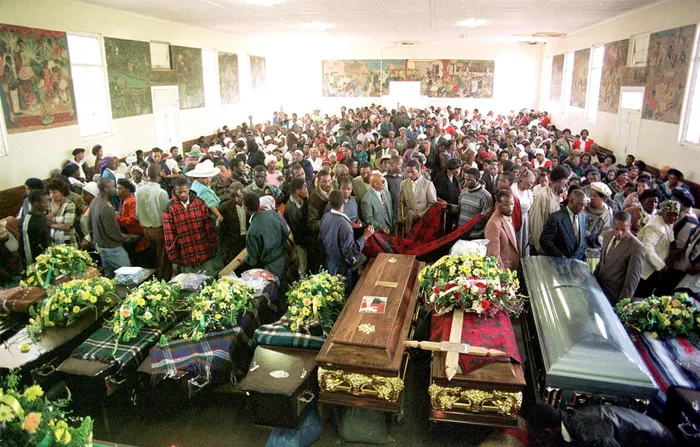
Most African traditions dictate that we speak only good of the dead — that we mourn their passing, honour their memory, and adorn their graves with flowers.
Image: AFP
I PREFACE this piece with a disclaimer: I seldom indulge in vituperative or arresting titles. Yet, I have chosen this provocation deliberately — to send an unequivocal message.
Typically, my writing seeks to nourish my readers’ intellect, lighting a candle whose flame, God willing, will endure as a beacon for posterity.
Most African traditions dictate that we speak only good of the dead — that we mourn their passing, honour their memory, and adorn their graves with flowers. It is thus jarring, even heretical, to encounter a work like Rotcod Gobata’s *I Spit on Their Graves*, which rejects this reverence. Gobata argues that not all corpses deserve praise; some warrant contempt for lives spent plundering their nation.
Recently, I was honoured to attend MEC Siboniso Duma’s budget presentation in the legislature — an uncommon privilege for a government employee. The MEC even acknowledged me publicly, leaving me feeling valued, validated, and even celebrated. Yet, my elation soon curdled into dismay.
The ANC, IFP, and MK Party must unite. Instead of collaborating to uplift the downtrodden, they prioritise petty political squabbles. During the budget debate, rather than engaging constructively with Duma’s impeccable speech — one so robust it withstood scrutiny in under 20 minutes — they nitpicked pointlessly. This farce cannot continue. KwaZulu-Natal deserves better.
If these parties fail to reconcile, history will judge them harshly. Their graves will be defiled by the very people they betrayed. Our democracy is decaying, reduced to hollow rhetoric. South Africa is losing its soul.
As Gobata writes, we resemble a battered car careening recklessly down a highway. Thirty years into democracy, our economy remains hoarded by a few, corruption runs rampant, and factionalism festers.
This morning, I awoke to a haunting chorus: Where is the Love You Promised Me? Few pains rival broken promises — they are betrayals. Shakespeare reminds us: “The fault, dear Brutus, is not in our stars, but in ourselves.” South Africans, too, bear responsibility. We clamour for change yet elect the same charlatans. If we truly desired transformation, we would have achieved it by now.
As for Duma, he must persist in his exemplary leadership. Rosalynn Carter once said: “A great leader takes people where they ought to be.” In an era of bankrupt leadership, Duma stands apart — a rarity in our political wasteland. He embodies Harry Truman’s assertion that progress hinges on courageous leaders seizing opportunities.
Like Kissinger’s ideal leader, Duma guides people “from where they are to where they have not been”. Leadership, after all, is action, not position.
* Dr Vusi Shongwe works in the Department of Sport, Arts, and Culture in KwaZulu-Natal and writes in his personal capacity.
** The views expressed here do not reflect those of the Sunday Independent, IOL, or Independent Media.